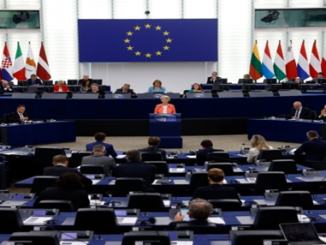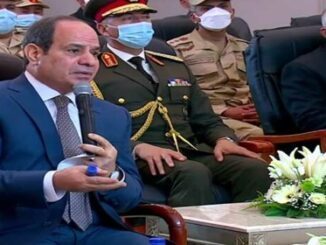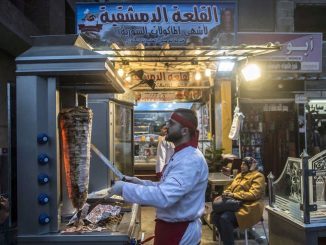
Egyptian authorities have continued to throw more activista and journalists behind bars, even as the have released some journalists to improve the regime’s image ahead of the upcoming national dialogue.
Darb news website three days ago reported that Egyptian authorities arrested yet another journalist in July, which supports Reporters Without Borders’ recent description of Egypt as “an open prison for media personnel.”
Raouf Abbas Ebeid, a reporter for state-owned newspaper Rose al-Yusuf, was arrested from his home in Cairo and forcibly disappeared until he was brought before the Supreme State Security Prosecution on July 18.
Prosecutors, without providing any evidence, charged him with belonging to a terrorist group and spreading false news.
Ebeid’s family initially declined to publicize his arrest out of hope that he would be released, but they elected to come forward after the terrorism charges were announced.
They added that he suffers from several health conditions that require urgent care, which he is not receiving in prison.
“Abdel Fattah al-Sisi’s government is not fooling anyone into thinking it respects press freedom by releasing a few journalists this year, since it continues to arrest more,” said Sherif Mansour, Middle East and North Africa program coordinator at the Committee to Protect Journalists.
“Egyptian authorities must immediately and unconditionally release journalist Raouf Ebeid, drop all charges against him, and allow journalists to work freely and without fear of arrest.”
Reporters Without Borders (RSF) has pointed out that ”the entire country is an open prison for media personnel”. RSF also stressed that 21 journalists are still jailed, including Alaa Abdel Fattah.
“We hail the release of journalists and we take note of this gesture by the authorities,” RSF’s Middle East desk said. “But the releases are being made piecemeal and are insufficient. The Egyptian authorities continue to hold around 20 journalists and seem to want to make no concessions on some of the most emblematic cases.”
Seven prisoners – including freelance journalist Hisham Fouad – were freed at the end of July (prior to the Muslim New Year), in the latest batch of presidential pardons since the start of the year. He was preceded by Al-Karama reporter Hossam Moanis, who was one of the more than 3,000 prisoners pardoned on 25 April, Sinai Liberation Day. These two journalists were arrested on the same day in June 2019 and were convicted in the same case in November 2021.
Superkoora editorial director Hany Grisha (held since August 2020) and Amer Abdel Monaem, the editor of the newspaper El-Shaab (held since December 2020) were released at the end of April under a pardon for more than 980 prisoners for Eid al-Fitr, the festivity marking the end of Ramadan.
Khaled Ghoneim, Alhayah TV presenter held since April 2020, was released at the end of May as a result of a judicial decision unrelated to any presidential pardon.
Joe Biden’s arrival in the White House has prodded Egypt into good conduct gestures. The United States provides Egypt with $1.3 billion in military aid each year and the disbursement of another $130 million is now conditioned on respect for human rights.
A total of 21 journalists continue to the detained in Egypt. They include the bloggers “Mohamed Oxygen” and Alaa Abdel Fattah, who were sentenced in December 2021 to four years and five years in prison, respectively, on charges of “membership of a terrorist group” and “spreading fake news.”
Abdel-Fattah has been on a hunger strike since 2 April and, according to his sister, Mona Seif, several of his fellow detainees were considering a “group suicide” after learning they were not on the list of prisoners to be pardoned.
Those detained also include Alia Awad, a freelance photographer sentenced in late June to 15 years in prison on terrorism charges dating back to 2013, and four Al Jazeera journalists – Rabie El-Sheikh, Ahmed El-Nagdy, Bahaa Ed-Din Ibrahim and Hesham Abdel Aziz – who have been held preventively for periods ranging from one to three years on charges of “membership of a terrorist group” and “spreading fake news.”
Online access to Al-Manassa, an independent Egyptian news website, has been blocked in Egypt since last month. More than 500 websites have been made inaccessible since 2017, including RSF’s.



